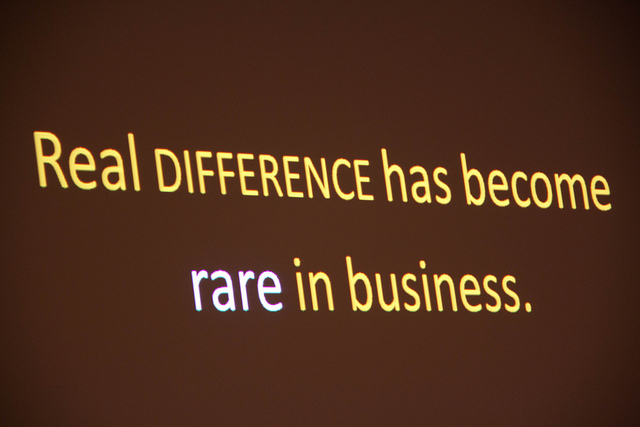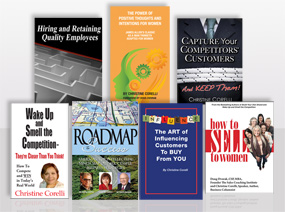
Several years ago, Max Gunther authored a book entitled, “The Luck Factor.” For twenty years, he researched and studied successful people on all levels and from many walks of life. His objective was to determine whether there is truly such a thing as “luck.”
What his research proved, was it wasn’t so much the “luck” factor that gave them their success, but it was more due to the fact that an overwhelming majority of those who felt they had achieved success possessed the “Like Factor.” He found that people who were genuinely friendly, outgoing, and had a great sense of humor had the odds in their favor to achieve success in both their business and personal lives.
In Gunther’s own words, “These people make themselves known to many other people, usually without thinking about it. They’re gregarious. They go out of their way to be friendly. They talk to strangers, and are joyous meeters and greeters. They start conversations. The woman who pours their morning coffee is more than just a face.”
He compares people we may consider as “lucky,” to a spider. “A spider strings many lines to catch passing flies and the bigger her web, the better she eats. So it is with those who would catch good luck. In general. . .the luckiest men and women are those whose personalities draw people to them, and have also taken the trouble to form a great deal of friendly contacts with others.”
If you are in sales, (even if your title is not “sales” you are still “in sales” if you service customers!) you know for certain that sales success is never only due to the brilliance of your sales presentation or your gift of gab. Great sales trainers will tell you the customer is not always buying your product or service, more often they’re buying YOU. It’s your personality and how you conduct yourself that becomes a major factor in the buying decision. If you possess the “Like Factor” your ability to influence customers to do business with you will be tenfold.
Follow the example of the spider and spin your web wide and strong. The bigger and stronger you spin it, the more chances you’ll have to catch customers. Look at a spider’s sticky web and remember that good old-fashioned “stick-to-itiveness” too. Stick to making those sales calls and striving to win-over customers. Work hard at developing mutually beneficial relationships and reinforce your “likeability” with every customer encounter.
If you are in a leadership position, your success is not only due to the brilliance of your strategic planning, your ability to communicate your vision, and your level of expertise. It has to do with your ability to keep your people motivated and influence them to follow your lead.
Here again, the Like Factor comes into play. If you are a great person to work with (notice I said WITH not FOR) and your employees LIKE you, you’ll be “lucky” and be able to keep them happy and productive. This is vital in today’s challenging economy where it is harder to make a living, and employees are feeling the pressure to perform. Consider this: The Number One cause for job dissatisfaction in America today is working for a bad boss. If you possess the “Like Factor,” the odds are in your favor that your people will be productive and want to perform for you. Follow the practice of smart companies. Adopt a “Zero-Tolerance For Bad Bosses” policy in your company.)
Below are ten ways to increase your likeability.
1. Go out of your way to say hello and to greet people. Ignore no one. Make a conscious effort to be more outgoing. Always extend a firm handshake. Keep in mind that “nothing is so sweet as the sound of one’s own name.” Whenever you greet people, call them by their name and say it often during conversation.
2. Focus on the positive in everyone you encounter, reaffirm, and encourage them. In doing so, you’ll bring out the best in people, and make them feel good about themselves.
3. Master the art of being “YOU FOCUSED.” Make it a habit to ask people questions about themselves, their business, their jobs, their families, their hobbies and their challenges. Doing so makes people feel important, and that you genuinely care about them. “How’s your job going?” “Is there anything I can do for you?” “How was your day?” Ask for their opinions and ideas. “What do you think would make it work?” When communicating with customers, portray a higher level of service you’re your competitors. Internalize their goals as your own, and demonstrate that you care about their success as much as you care about your own. “What’s the most important thing to you about this purchase?” “How can I help you?” “What are the challenges you are facing?” “Is there anything more I can do for you today?”
4. Display class, professionalism and practice integrity at all times. Always be ethical and honest. Practice speaking with tact and diplomacy. If you are in sales, never pester your customers. Instead, ask their permission… “With your permission, may I touch base with you from time-to time?” Refrain from ever bad-mouthing your competition. Say, “I know they do a good job. May I share with you why we have a record of over seventy-five percent customer loyalty?”
5. Say these words or phrases at least ten times a day. “I appreciate…” “Thank you for…” “My pleasure.” “Please” “Would you be so kind…?” Ask this question often: Ask this one at least ten times a day in your daily interaction with others: “How are you?” If you are in a management position, the last words you should say to an employee when they go home for the day is, “Hey thanks for a good job today, Joe.” When’s the last time you told your employees how much you appreciate their hard work?” Make sure you spend time with them to help them to excel at what they do. Ask how you can help them.
6. Maintain a good sense of humor and laugh a lot. Don’t take life so seriously. Each time you laugh, you put a surge of positive energy into your spirit. Everyone loves a person with a hearty laugh. Smile a lot. You’ll make others smile too and most definitely increase your likability.
7. Be compassionate, be considerate, and delight people when they least expect it. Deliver unexpected kindnesses and courtesies. Most often, it’s the little things you do that make a difference.
8. Develop the ability to put yourself in the other person’s shoes. Whenever you communicate to others, always think of the individual or group’s situation. (How would I feel if I were them?) Then, communicate from their perspective–“What’s important to you about this project?” “I understand your concern.” “I can see how you feel about this.” “I know how hard you’ve be working.”
9. Give people your undivided attention, maintain eye contact and LISTEN. One of the greatest gifts you can give to others is the gift of rapt attention. Dale Carnegie stated, “Everyone is born with an invisible sign on them. It says, “Make Me Feel Important.” Never look away from someone who is talking to you. If you can learn to make that person feel as if they are the only person in the world at that moment in time, you will definitely increase your level of “likeability.” Make the person feel they are the only person in the room.
10. Give everyone in life, especially your children, the precious gift every human being deserves: the gift of self esteem. Ego hunger is as universal and natural as the hunger for food. The body needs food to survive, the ego needs attention, respect, and approval from others. Give this gift everyday, and you will find that YOU not only will you increase your level of likability, but you will find more meaning and purpose in your life.
Photo Courtesy of (Betsy Weber) – Flickr

